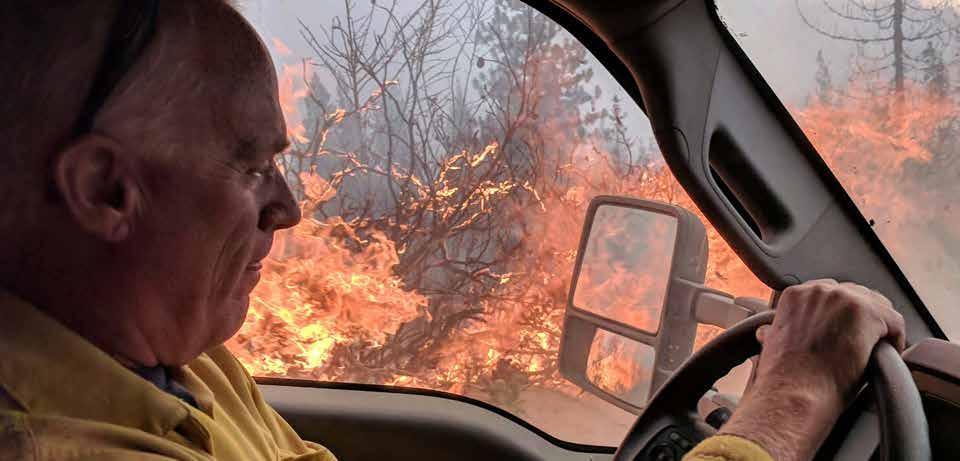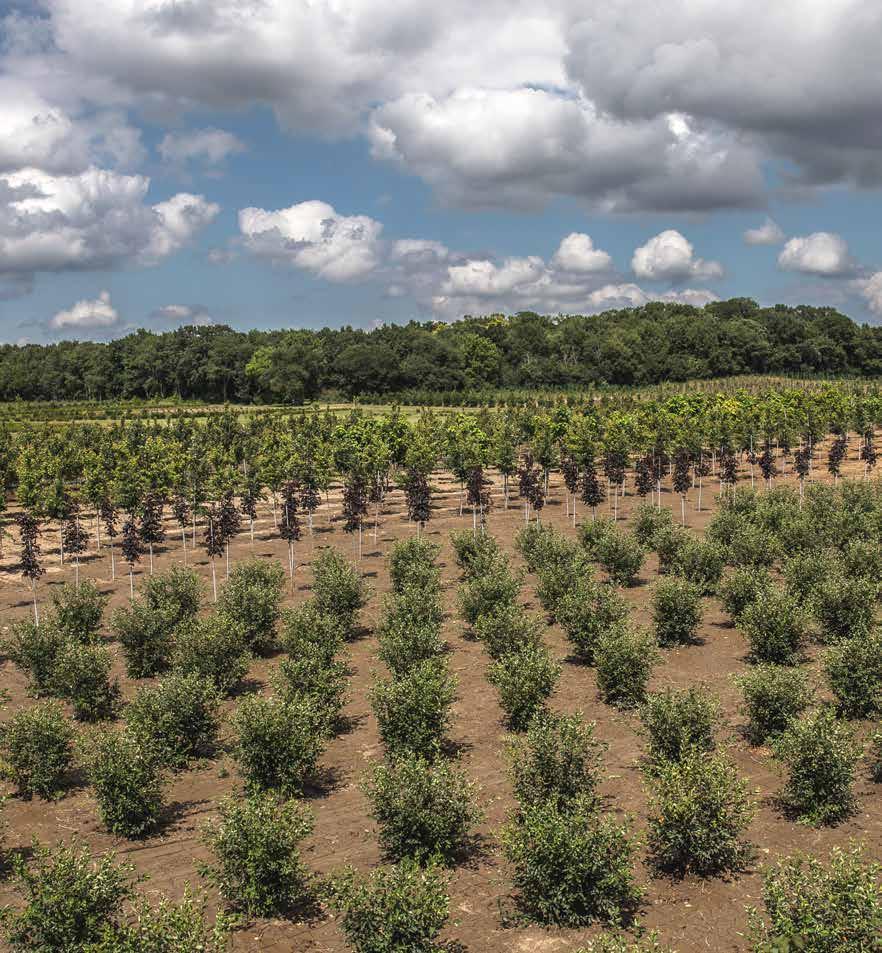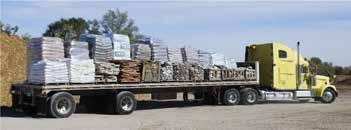
5 minute read
ILCA Firm Stands Tall When Fires Break Out TGF Enterprises/TGF Forestry and Fire
ILCA Firm Stands Tall When Fires Break Out
by Meta L. Levin
Your average landscape contractor
almost never can be found fighting wildland fires in northern California, but that’s exactly what Tom Flader of Libertyville based TGF Enterprises/TGF Forestry and Fire was doing in August and September 2020.
It all started about 10 years ago, when Flader recognized the need for prescribed burns, especially in nearby prairie areas. “We do a lot of prescribed burns within 100 miles of our office,” he says.
A firefighter/paramedic since the age of 17, he decided that if he was going to provide prescribed burns, his employees needed specialized training, so he sent them to school in northern Wisconsin. “If we were going to light fires, I thought, let’s have the basic training in how to put them out,” Flader says. “It’s totally different than fighting house fires.”
In Wisconsin, they also learned about the excitement of fighting wildfires in places like Georgia, Florida, Wisconsin, Colorado and California. That led to a new division of his company, called TGF Forestry and Fire, as well as regular stints in the heat, smoke and dust of wildland fires.
Since that first training, Flader has sent his crews for more all over the United States. “I send them to the best classes,” he says. Some of his staff now teaches basic classes for the University of Illinois firefighting program.
TGF became a federal contractor for the US Forest Service more than 15 years ago. It’s crews typically respond to two to four fires per season, spending anywhere from 14 to 60 days fighting them.
Don’t misunderstand, Flader still runs a landscape contracting business that provides landscape design/build, irrigation, landscape lighting, snow removal and other services that you normally would find from a landscape company. He also serves on the ILCA Irrigation Committee. But his company’s other arm takes things beyond what you generally would find in the landscape industry. “We contract out to fight wildland fires all over the nation,” says Flader.
(continued on page 14)
(continued from page 12)
Even his fleet is somewhat unusual for a landscape contractor. In addition to the usual trucks, it includes two Type 6 Wildland Engines and several specially equipped all terrain vehicles for remote area firefighting, as well as several dedicated pieces of heavy equipment designed to manage landscape and forestry areas and other equipment meant for brush clearing, making firebreaks and moving materials.
The pandemic complicated this year’s wildland firefighting. “This past summer we left August 23 and we were in California until September 21,” says Flader. For several weeks they were in a remote area north of San Francisco. To make matters more challenging, in northern California high winds resulted in fast moving fires. Typically, the firefighters work for 16 hours, resting for eight, during any one 24-hour period. The windy conditions meant that they did not know where they would be able to pitch their tents every evening.
Each morning they took down the tents and packed them into trucks. Following their 16-hour shifts, they pitched them in a new, designated and safe spot. Under normal circumstances, they can stay in a hotel or a tent that they can leave in one place. In the Northwest part of the United States, they usually stay in tents.
Instead of unwinding and relaxing in a tent dining hall (continued on page 14)

HARDSCAPES & MASONRY
hardscapes-masonry.polycor.com



711 S Material Road Romeoville, IL 800-762-5738 • 815-836-0086 RocksEtc@ATT.net


BAGGED OR BULK? MULCH OR ROCK? WE’VE GOT YOU COVERED! (continued from page 14) with wildland firefighters from other parts of the United States, they adhered to strict COVID related protocols: hand washing/ sanitizing, masks and staying apart. Meals were individually packaged and delivered to the tents. It eliminated some of the camaraderie, but everyone stayed safe, says Flader, who was one of those out there fighting the fires.
This summer, “amenities were limited,” he says. Food and water all were flown in by helicopter. “The crews can’t run to the store for a replacement part or snacks.” Even getting fuel daily could be difficult. Access meant that they drove two hours at about five miles per hour, up mountains on gravel roads. They got showers maybe once a week and bathroom facilities were few and far between. In an attempt to run his landscape business, Flader rotated in and out of the fire area. “I
have a wonderful group,” he says.
The men on his crew are trained to do many things besides fighting wildland fires. They must maintain the trucks and equipment, including changing tires, which take a beating on the unpaved mountain roads, as well as provide medical help to those who are injured or ill – other firefighters and civilians. “They are very resourceful,” he says. “Everyone is willing to help each other.”
They have had to rescue people whose cars or trucks have rolled down mountains – both civilians and other firefighters. Once a firefighter was stung by multiple bees. He was allergic and needed immediate medical attention. Another was stabbed by a thorn and the wound became infected.
It is, says Flader, “an extremely dirty job. The dust is unbelievable, because it is so dry.” The scenery, however, can be breathtaking. Often, they are fighting fires in national forests and parks in areas not typically traveled by the public. The hours, however, are long.
Flader follows The National Wildfire Coordinating Group (NWCG), which provides, among other things, a national set of training and equipment standards for those fighting the fires with partners from and on federal, state, local, tribal and territorial lands. FEMA (Federal Emergency Management Association) also is involved in firefighting, providing training, education and professional development.
Between them, the agencies prescribe such things as the right pumps, tanks and other equipment needed for emergency wildland firefighting.


18715 Route 84 N Cordova, IL 800-736-1356 • 309-654-2261 Sales@XylemLtd.com









